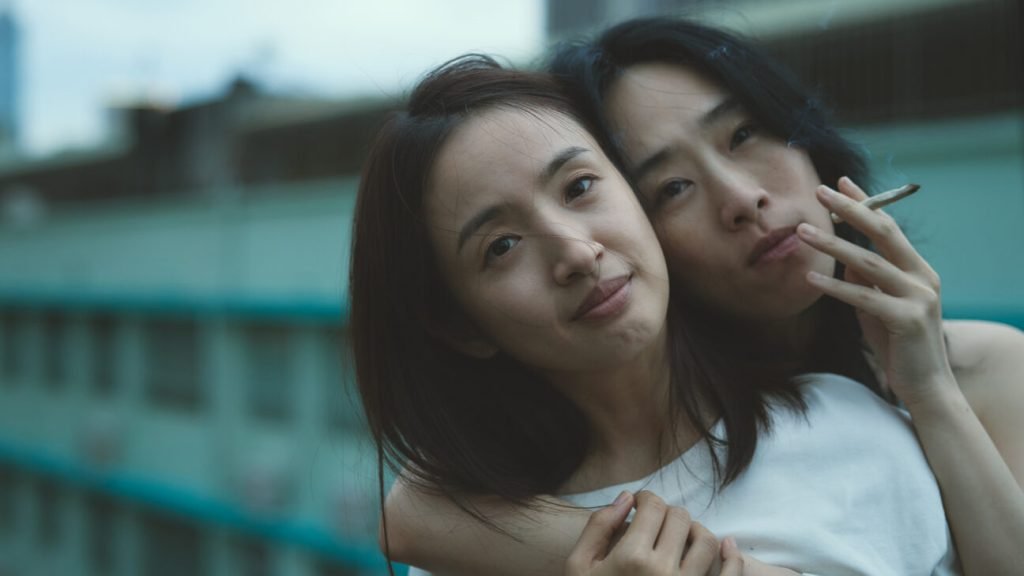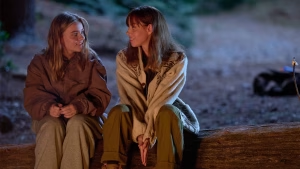Based on Essay Liu‘s award-winning short story titled Blindness, Blind Love (失明, lit. “blindness”) is the sophomore feature of Taiwanese director Julian Chou, who makes her appearance in Rotterdam with the film, which recently enjoyed its world premiere in the 2025 International Film Festival Rotterdam’s Tiger Competition. Chou is also the founder of CHOU’s Entertainment Ltd., having turned to producing and then directing, undertaking studies at Beijing Film Academy.
Blind Love navigates sociopolitical complexities in the lives of a mother (Ariel Lin) and son (Jimmy Liu), both of whom fall for a flirtatious but passionate woman, the eye doctor Xue-jin (Ke-Xi Wu)—read our review of the film here. In conjunction with the premiere of her film, Purple Hour spoke with Chou about the film’s immense relevance amidst a shifting sociopolitical landscape in Taiwan, which includes intersecting dimensions of traditional commitments to family with a new generation hungry for openmindedness.
*****
Purple Hour: This is very different from your first feature film as director. What about the story initially drew you to the project?
Julian Chou: When I first read the story, I was really intrigued by how it intertwined family conflicts with issues of gender identity. I found that blend incredibly compelling—it actually mirrors the contradictory nature of contemporary Taiwanese society. Essentially, we decided to tell a story that reflects these pervasive contradictions through the lenses of gender and family dynamics.
As seen through many of the film’s intimate moments, your visual style and mise-en-scène feels very soft and lush. What aspects were you thinking about most when talking with your cinematographer, Tamás Dobos?
I focused on composition and lighting. I believe every frame should precisely capture the relationships between the characters and their inner emotions.
The story is set before Taiwan passed its landmark marriage equality legislation in 2019. How do you view the film as responding to the state of acceptance of queer people in Taiwan today?
I read several reports last year that featured some really interesting surveys. They showed that after Taiwan passed the same-sex marriage law, support and friendliness towards the LGBTQ community slightly declined—fewer people remained neutral, while the proportions of those opposed or unsupportive increased, shifting the overall sentiment to be less friendly. It makes you wonder what happened along the way.
Generally, Chinese societies tend to be more conservative, and even today, news stories and personal experiences from my friends are quite disheartening. They reveal that the Taiwanese public still harbors mixed, contradictory feelings about this issue. In our film, the father’s [played by Frederick Lee] reaction at the end perfectly reflects this sentiment—acceptance does not necessarily equate to full endorsement. I also included several running scenes for the two female leads as a metaphor, suggesting that in life, you have to keep running to hold on to hope.

Xue-jin, the character played by the very charismatic Ke-Xi Wu, is interested in both men and women. However, her personality changes depending on who she is with because she has to defend herself against criticism. Do you feel like this is a common behavior in Taiwan today? Or do you think the situation has improved enough for people to be truly open?
Haha, I think it’s quite common. The issue of gender identity really needs to be approached from multiple perspectives—after all, some people might never encounter it in their lifetime. But within the LGBTQ community, they still view themselves as a minority, which can lead to a more conflicted mindset. After all, society’s tolerance isn’t yet strong enough for them to not feel the need to defend themselves.
Who are you hoping will be most inspired by this film? Are there specific groups of people you are hoping will have the chance to see your film?
I’ve always been pondering the concept of diversity in society. Before making this film, I conducted numerous interviews and discovered many facts that were completely opposite to what I had expected—perhaps because the environment I work in is relatively open and free. This experience made me question what diversity really means. Society appears to be progressing, yet in many ways, nothing seems to change. In the film, whether it’s Ariel Lin’s character, Wu Ke-Xi’s character, the son, or the father—their journeys all involve gradual self-discovery and conscious change. I believe everyone who watches the film will be able to find something that resonates with them.





